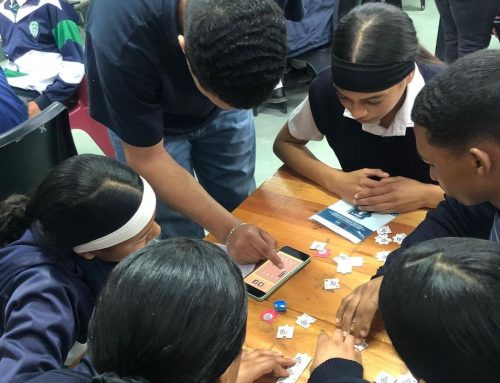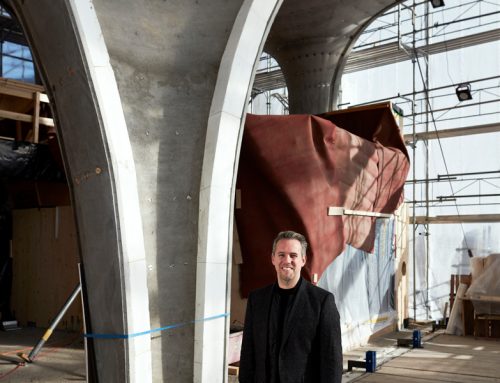 WHEN rocket scientists Denise Wilson and Prevani Kistan-Naidoo are introduced to people and asked what they do, the response is usually “No, really”, “Me, too” or “You’re joking”.
WHEN rocket scientists Denise Wilson and Prevani Kistan-Naidoo are introduced to people and asked what they do, the response is usually “No, really”, “Me, too” or “You’re joking”.
“That’s why we usually just say we’re engineers,” smiles Wilson, who heads up the R1 billion A-Darter air-to-air missile programme at Denel Dynamics, the arms manufacturer based in Irene in Pretoria. Wilson is recognised as one of the world’s top rocket scientists in the highly specialised field of missile making, and her A-Darter missile team of 200 includes a fleet of rockets scientists.
On the team is Kistan-Naidoo, who is a principal aerodynamicist in the design and development of the A-Darter, a fifth generation, close-combat, air-to-air missile. It is one of the most advanced missiles in the world and a project of national and strategic importance.
A joint initiative between the SANDF and the Brazilian Air force, the five-year A-Darter project, launched in 2007, is South Africa’s biggest defence collaboration programme in the post-1994 era.
Both women were drawn to the defence industry because of the high level of skills and expertise in high-end technology. “It’s stimulating to work with uch intelligent and creative people who compete easily in the international world. We’re a close-knit bunch and we complement each other within our diversity of language, culture, race and age,” says Kistan-Naidoo, who joined Denel Dynamics as a junior missile aerodynamicist in 2002. Eight years later she heads the department.
“I have always been obsessed with flight,” she explains. “It started when I was a child and my dad would take me to air shows. From then on I wanted to design things that can fly.”
With a string of degrees to her name, including a Master’s degree in engineering from Wits University, she rates the A-Darter project as the most thrilling of her career. “I specialise in computational fluid dynamics and when the experimental results confirmed the simulation results, and the missile flew for the first time, it gave me a warm fuzzy feeling.”
A rather unconventional warm fuzzy feeling, but one that Wilson shares. “When it comes to cuttingedge design and development, you can’t beat this industry,” adds Wilson, who joined Denel after she and her industrial engineer husband came to South Africa in 1982.
Wilson studied at the Royal Military College of Science in the UK, and has a Master’s degree in engineering from Wits. “Opportunities come your way that can change the direction of your life. Mine came as a convent girl in the UK with an aptitude for maths and science when I was awarded a bursary to study at the Royal Military College of Science.”
The Wilsons enjoyed living in South Africa so much that they stayed, and Denise became one of Denel’s first female project managers, culminating in her appointment to the A-Darter project.
“We have a brilliant team, including about 30 Brazilians, and the project has been very successful to date,” she enthuses.
“In May we completed our final ground launch tests at the test range near Cape Agulhas, which we regularly visit. We used a rocket motor to get the missile into the air. In June we completed our first air to-air test from an SA Air Force Gripen fighter jet. This was to test the safe release of the missile.
“Next year we will do a similar test, and this time the missile will be guided towards a heat source – which represents the other plane. This test firing is a crucial achievement and milestone in the project,” Wilson explains.
Perfecting a killer weapon is not everybody’s game, and Wilson and Kistan-Naidoo are studies in double lives. By day they spend their time calculating how to launch missiles while forging international ties. After hours, Wilson can be found bird-watching, baking bread or doing cross-stitch – one of her favourite pieces reads: “A woman is meant to be loved, not understood.”
And Kistan-Naidoo can be found running around with her beloved border collies or whipping up exotic dishes: “My husband and I love cooking and we’re experts on where to source the best foods.” She is on maternity leave, in the last stages of pregnancy.
Wilson knows the balancing act required to be a rocket scientist and a mother. She has two adult sons, an engineer and a chef, and a three year- old granddaughter. “It’s all about time management,” she says. “No matter how important a project you are working on, I learnt when my children were young that I needed to go home at the close of business.
“People in high-level jobs often make the mistake of not knowing when to stop despite the fact that it is detrimental to their family and to their performance. You have to maintain balance in your life.” The portrait of motherhood and missiles doesn’t mix for most, but for Wilson and Kistan-Naidoo they’re a natural fit because it’s all about protection and keeping your family or country safe.
“We work in the defence industry, not the attack industry,” Wilson emphasises. “These missiles are designed to be used defensively to protect our country’s borders or other countries’ borders. I think the World Cup was a very good example of protecting borders. The SANDF was on full border protection alert – ground, air and sea – during this time to keep people safe.”
The question of misuse of missiles is not theirs to answer. They feel the high-end defence technology is not only important to national protection but also to the advancement of technology at large. To not develop it because of the risk that it might be misused is like saying you should not develop medicine lest it be abused.
These are 21st century women who clearly aren’t stuck in passive, traditional roles. Neither do they regard themselves as exceptions in a man’s world.
“In our field, your ability is what is recognised,” says Wilson. “Once you’ve proved yourself technically, it really doesn’t make a difference to the team if you are a woman or a man. We enjoy great teamwork, we all work extremely hard and have a lot of fun doing it.”
Having said that, her team of 200 people is almost exclusively men. “This is changing and more women are entering the engineering field,” she says. “There are already some very competent women engineers. Women bring a very different set of interpersonal skills and insights, which add a valuable dimension to the engineering space.
Prevani is an excellent example; she is vivacious, highly intelligent and a really brilliant engineer.” Kistan-Naidoo adds that she does not feel “the slightest bit prejudiced” in their mainly male team: “I think when you’re working in such a high-technology environment, your capabilities and competencies play a very important role. If your work is good and you pull your weight, gender doesn’t play a part.”
To advance young people of both genders and every colour, Denel Dynamics supports about 20 bursars at university, and it has a mentorship and internship programme “I currently have one woman graduate on my team,” says Kistan-Naidoo. “There aren’t many women working in the defence industry, mainly due to the lack of exposure to the scope for growth and opportunity.
The time has come to change to this. “Women in South Africa have achieved so much in a short period, but there’s still so much that needs to be done. We still live in a patriarchal society and in many of our diverse cultures, women are still held back in favour of men. While many men have embraced the fact that women are progressing, there are many who still feel threatened by women advancing.
“We need to change this mindset and we need to start changing it at home, when children are small, to get them thinking that females and males are created equal and that it is good for females to excel and get an education,” Kistan-Naidoo adds.
For the new generation of young people around her, Wilson is the perfect example of how to seize life and get cracking without preconceptions about who or what you are. Her advice to all young people is “to seize the opportunities that come your way because they could change the direction of your life”.




